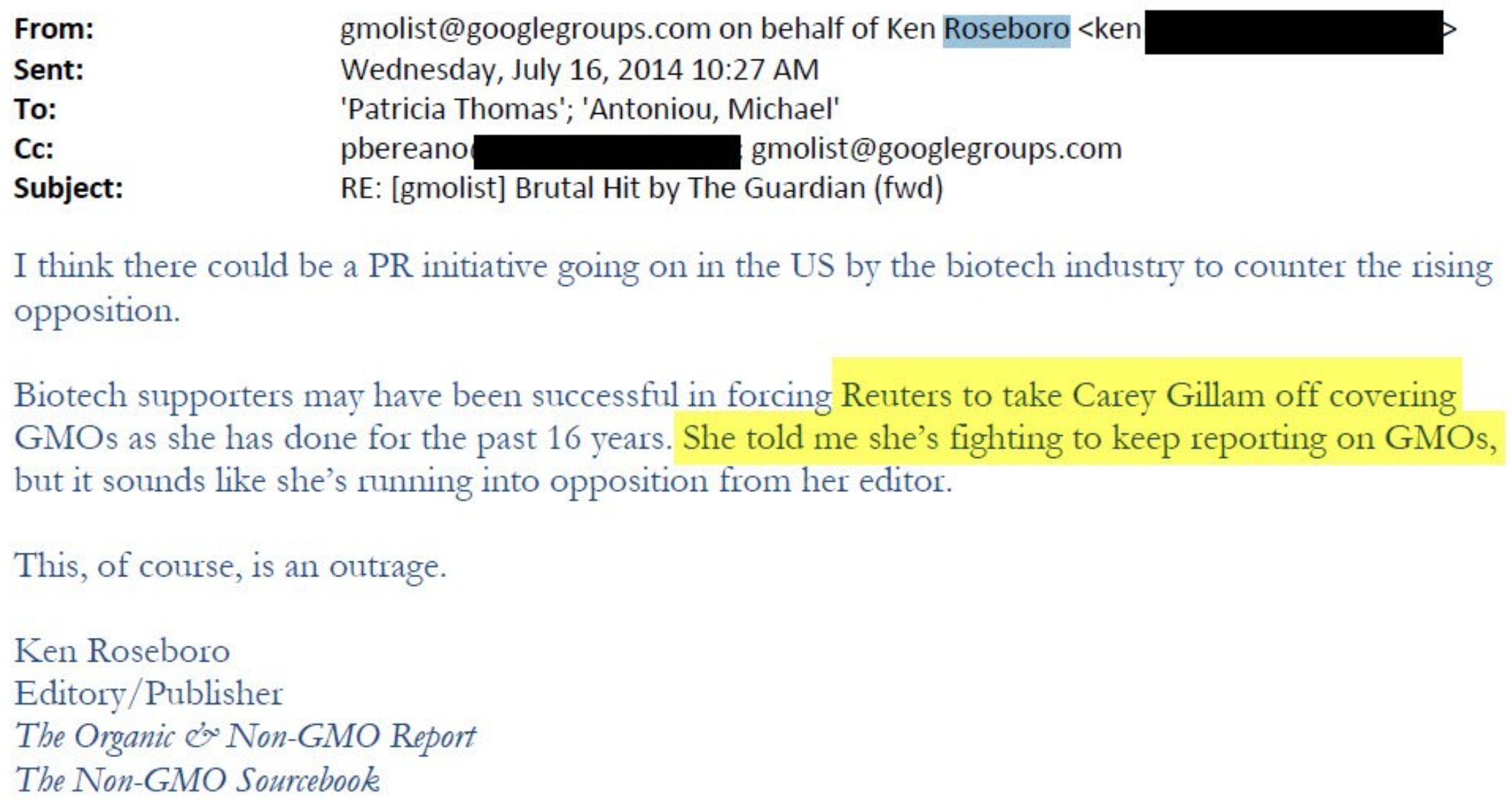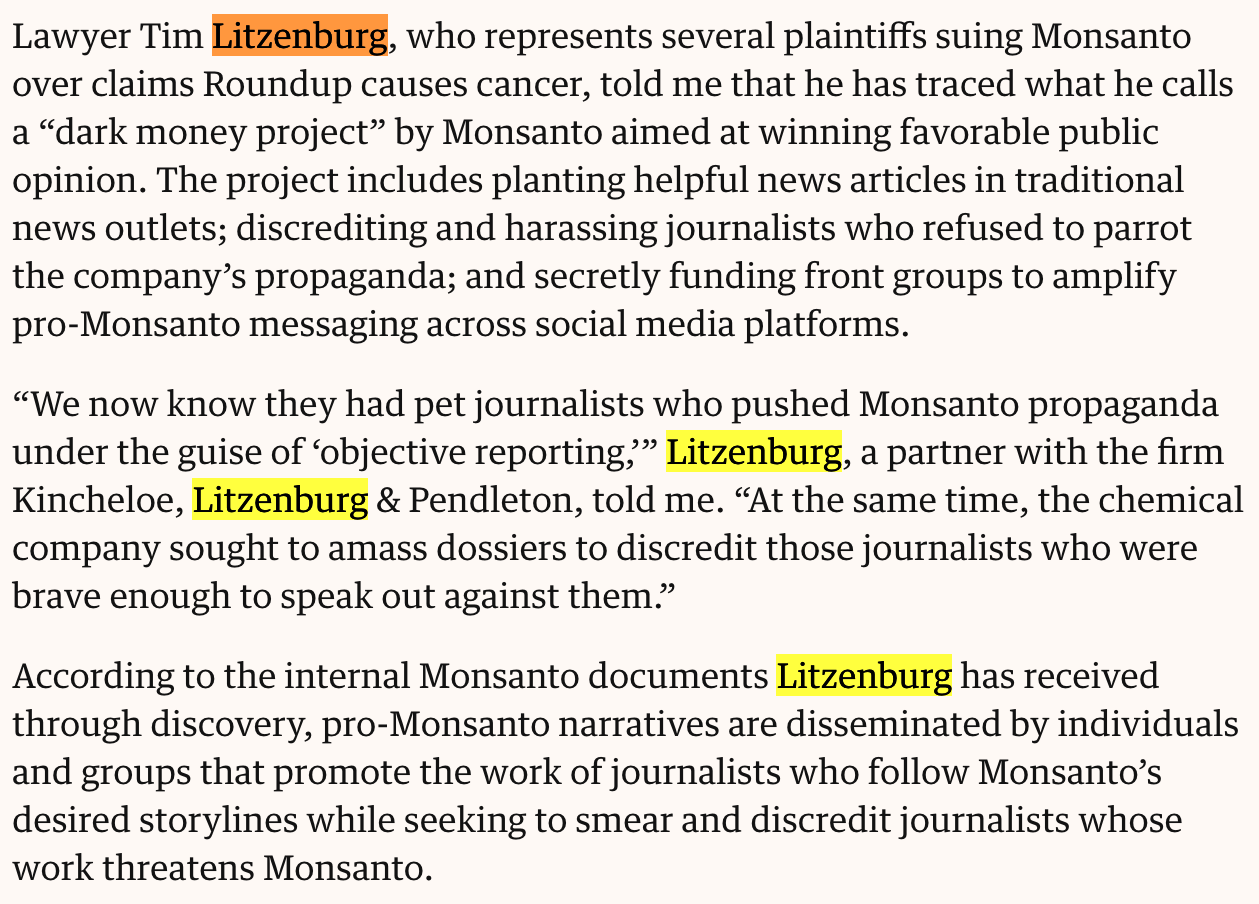Just two days ago, Dr. Josh Bloom and I co-authored an article about how the "activist-legal complex" -- an unholy alliance of cranks and trial lawyers -- deploys pseudoscientific tricks to shake down companies for large settlements or jackpot verdicts.
As usual, we received pushback. One luminary on Twitter wrote, "Oh shut up guys, that’s not how this works."
Actually, that's exactly how this works. And the U.S. Department of Justice agrees with us. In a press release, the DOJ said that one of the lead plaintiffs' attorneys, Timothy Litzenburg, who helped land a $289-million hit job against Monsanto has been arrested for the attempted extortion of $200 million from another chemical company involved in the production of Roundup.
If the company (which the Wall Street Journal identified as Nouryon) did not cough up the money, Litzenburg would send in a "parade of horribles" (i.e., cancer patients) like he did to Monsanto, according to an affidavit. He also promised a "40 percent stock loss" and a "public relations nightmare." But if Nouryon complied with his demand, then he would intentionally lose the case, just like the Black Sox in the 1919 World Series.
 And, as it just so happens, Litzenburg has a buddy in Carey Gillam, a former journalist who left Reuters under troublesome circumstances (see image) and subsequently took a job with the anti-GMO activist organization U.S. Right to Know (USRTK). USRTK, a corporate front group that is primarily funded by the organic industry, routinely smears and spreads disinformation about biotech scientists.
And, as it just so happens, Litzenburg has a buddy in Carey Gillam, a former journalist who left Reuters under troublesome circumstances (see image) and subsequently took a job with the anti-GMO activist organization U.S. Right to Know (USRTK). USRTK, a corporate front group that is primarily funded by the organic industry, routinely smears and spreads disinformation about biotech scientists.
The Litzenburg-Gillam-USRTK Axis
Gillam has continued her crusade against GMOs by publishing in sympathetic outlets, such as The Guardian, which has gotten into the lucrative business of spreading anti-science and anti-American propaganda. In a June 2019 article, Gillam lied about our organization, claiming that we receive "marching orders" from Monsanto.
 As it turns out, Gillam was getting her marching orders from Litzenburg. She even dutifully repeated his deceptions several times in the aforementioned article. (See image.) For example:
As it turns out, Gillam was getting her marching orders from Litzenburg. She even dutifully repeated his deceptions several times in the aforementioned article. (See image.) For example:
"Lawyer Tim Litzenburg, who represents several plaintiffs suing Monsanto over claims Roundup causes cancer, told me that he has traced what he calls a 'dark money project' by Monsanto aimed at winning favorable public opinion."
In other words, Litzenburg was claiming a pro-Monsanto conspiracy when, in reality, it was the exact opposite: There was an anti-Monsanto conspiracy, and Litzenburg (allegedly) was at the very center of it. This is the sort of person that Gillam believes is a trustworthy guide on biotechnology.
The best part is how Gillam ended the article: "It’s time for the dishonesty to end."
Indeed. The U.S. Justice Department will see to that.




